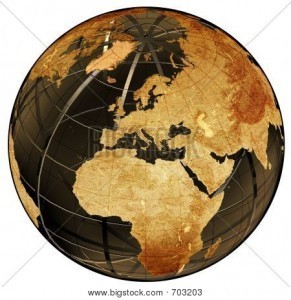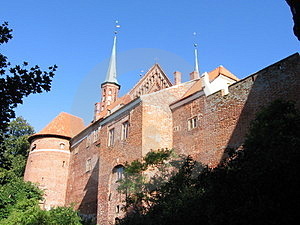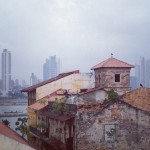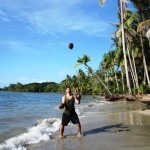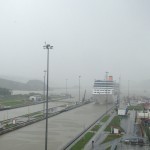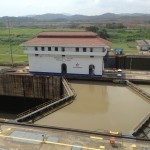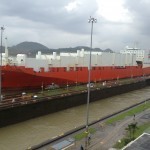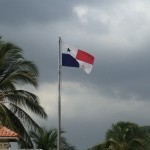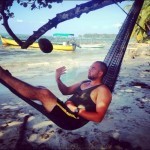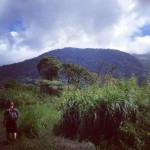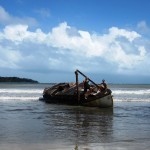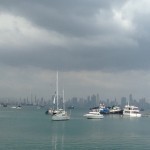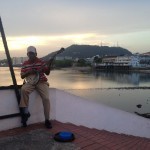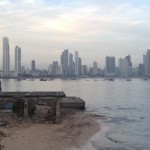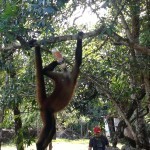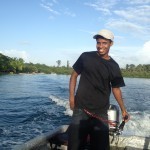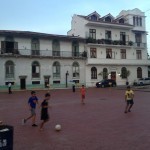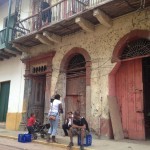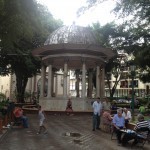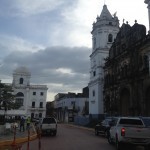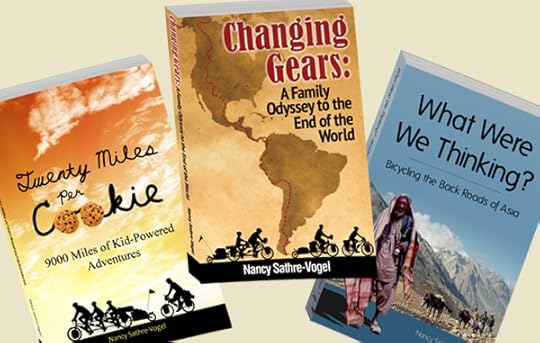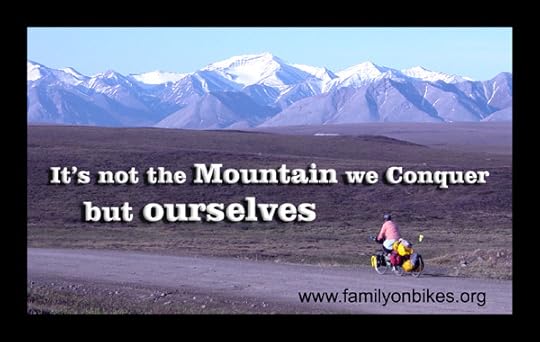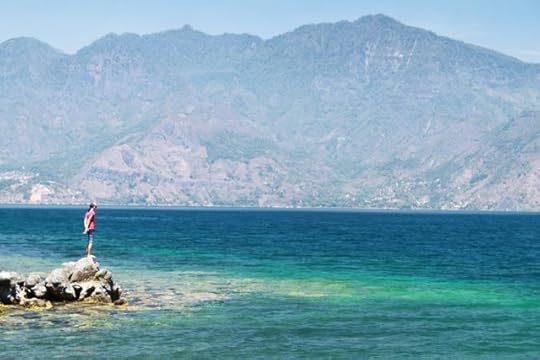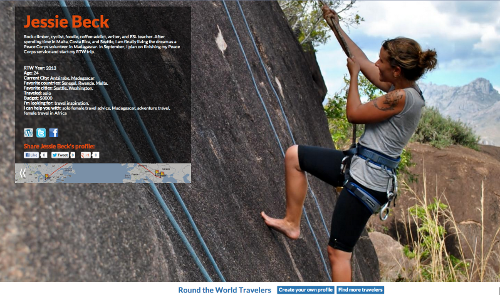Rolf Potts's Blog, page 65
March 28, 2013
The Next Destination, part I
Vagablogging :: Rolf Potts Vagabonding Blog
There is a common trait among us travelers regarding the seasons: With the onset of spring, thoughts turn to traveling. It’s in our DNA. This can pose a conundrum for us, since another trait of the inveterate traveler is difficulty with deciding where to go next with limited resources (and they are always limited).This can provoke a lot of angst and indecision for us. For the next few posts, I’ll be examining the different ways travelers approach the big decision of the Next Destination in hopes that it will help some globe trotters who are hung up on the issue.
Things to think about are finite things such as time and money. Where is affordable? How far can my dollars stretch? Can I spend enough time there to really get a feel for the place, and still eat decently and sleep in a clean place? What’s the exchange rate? Dollars to pesos or pounds (Greece is a good deal these days)? Is a bed and meal cheap where you’re going? Are there budget options like hostels and humble, family-run B&B’s? As Americans, we’re the most time-poor people in the industrialized world, so will you be able to beg, steal, and borrow enough time to really get a feel for your destination?
If time is less of an issue than money (i.e. you’re an unemployed travel writer like myself) there are ways to get overseas and immersed in a culture while earning income, such as work-stays can be a good option; doing seasonal agricultural work on a family farm in exchange for room and board can lead to deep, rewarding cultural immersion (and a nice tan). If less labor-intensive jobs are to your liking, summer gigs at a resort or even a hostel can help pay the bills.
In the next post I’ll discuss some things you can do to help yourself pare your list down to a manageable level and really start planning an adventure to remember.
Original article can be found here: The Next Destination, part I
Did Travel make me privileged?
Vagablogging :: Rolf Potts Vagabonding Blog
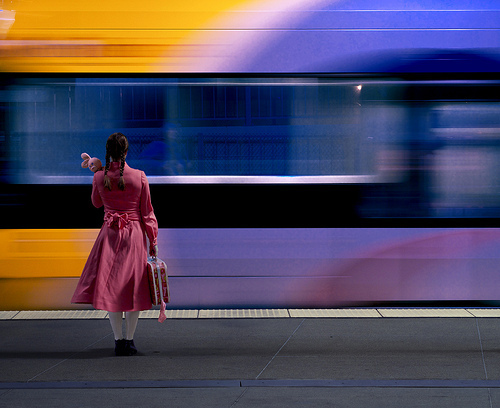
Picture credit: Flickr/shenamt
Compared to most of my unemployed – or struggling to keep that one job that keeps them floating –friends back home, I have to feel privileged.
This was the bottom line of a phone conversation I recently had with my parents. As more and more people struggle to make ends meet back home, I should be proud of my choice of living life king size. However, I should also recognize that I am one of the privileged.
A privilege, according to the dictionary, is “a right or immunity granted as a peculiar benefit, advantage, or favor”. Ok. I do not see anyone having granted me any special favor, besides my own self. I decided to leave home and travel, and then applied the same philosophy each time I found what I was doing somewhere getting pointless or in need of a change.
I strongly believe that my privilege is the fact I have had the guts to leave home.
That’s it, really. I am no super hero, and to do what I did you need no superpowers. When I compare my example to some of my friends who are still complaining about unemployment and sit on the couch for the best part of the day, I feel that my real privilege is having a positive attitude towards life. Because I just cannot sit still and wait for a job interview that will never come, losing my mind into the depths of satellite TV. What’s more, I believe that any given day is a privilege. We may equally spend said day getting to know the world, or fighting tooth and nail to reach our aspirations sitting in front of a computer screen. Whatever we do, or wherever we do it, is not that important. The crucial aspect is instead to acknowledge that by taking the steering wheel of our lives, we really are privileged. Light years ahead of anyone else.
Original article can be found here: Did Travel make me privileged?
March 26, 2013
Vagabonding Field Report: Connecting two oceans and continents in Panama
Vagablogging :: Rolf Potts Vagabonding Blog
Cost/day: $50/day
What’s the strangest thing you’ve seen lately?
The Panama Canal. I sat on the observation deck for hours, watching in amazement as several ships passed through one of mankind’s greatest engineering feats – which saves ships the arduous 8,000 mile (12,875 km) journey around South America by connecting the Atlantic and Pacific Ocean.
Describe a typical day:
Panama not only connects two oceans and two continents, but it appears to connect two different worlds. You have the skyscrapers of modern Panama City to the indigenous villages of the jungle. So depending on the day, I either spent all day exploring a modern city and frequenting nice restaurants and cafés, hiking up a mountain and swimming in hot springs, or hanging out on a beautiful beach.
Describe an interesting conversation you had with a local:
An older man told me about the unique and complex history of the U.S.-Panama relationship and the influence the U.S. has had on the country – from helping Panama gain its independence and being a preferred trade partner to the anti-American riots in the 1960s. The history would require an entire book, but the influence can be seen even in the small things, such as the fact that Panama is the only Latin American country where baseball – not soccer – is its most popular sport.
What do you like about where you are? Dislike?
Panama is paradise – beautiful beaches, delicious food and coffee, breathtaking hikes and friendly people.
It might sound odd, but I actually disliked the advanced transportation infrastructure. Nice roads and buses connected every city, which made it a little less of an adventure than many of the other countries I have been to. I never got lost, never felt confused or had to stretch beyond my comfort zone – which I find very healthy for the mind when traveling.
Describe a challenge you faced:
I arrived with my fiancée in Bocas del Toro on New Years Eve – which apparently every tourist in Panama decided to do too. Every hotel, hostel, couch surfing and AirBnB place we researched was booked. Knowing that a wave of more people were arriving to the island on the next boat, my fiancée and I decided to split up and run door to door to every place to see if they had any vacancy – booking whatever either of us could find on the spot. We eventually found something (probably the last place on the island), but I was secretly hoping we would have to move on to start asking locals to stay in their home!
What new lesson did you learn?
Shortcuts aren’t always shortcuts. Following one of my “brilliant” shortcut ideas on a hike, I doubled a return mountain hike for us instead of cutting it half.
Where next?
Costa Rica. For more on my trip to Panama, please check out my blog or Twitter!
Original article can be found here: Vagabonding Field Report: Connecting two oceans and continents in Panama
Changing Gears: A family odyssey to the end of the world
Vagablogging :: Rolf Potts Vagabonding Blog
Nancy has done the impossible.
And I don’t mean cycling from Prudhoe Bay, Alaska to Ushuaia, Argentina over three years with twin boys who broke the Guinness World record for youngest persons to cycle the continents. That’s entirely doable, as is clearly evident by their success. The impossible is encapsulating the scope of that epic adventure into a 350 page book and transporting the reader along every inch of the Pan American Highway.
Changing Gears: A Family Odyssey to the End of the World will take you on the adventure of a lifetime and make you fall in love with this family and their adventurous spirit. I can’t do it justice. I can’t sum it up in a way that wouldn’t fall far short of the sweeping landscapes Nancy paints, the hair raising close calls, the big hearted generosity of strangers, the quiet family moments in tents, and on hillsides where the real work of raising kids and crafting an education takes place.
Far from being just another “travel book” this is a dream you can hold in your hands
It’s an instruction manual in perseverance and crafting your own epic adventure can be drawn from an examination of their careful preparations and how the journey unfolds.
It’s an inspirational volume that will motivate you to make the most of the day you’ve been given, and the childhoods that you curate.
It’s a window into homeschooling on the road and what that looks like in daily life.
It’s a lesson in gratefulness for the little things: roofs over head, stoves to cook on, washing machines and the internal combustion engine!
It’s a treatise on the goodness of humanity, as person, after person, after person reminds us all that the vast majority of humanity will bend over backwards, not only to help someone in need, but to bless the socks off of someone for no good reason but paying it forward. Nancy calls these people her “Road Angels.”
This book is a lesson in the value of doing hard things, keeping on when the odds are stacked against you and every fiber of your being cries out to just quit, to lay down, to give up, maybe even to have a nervous breakdown, or die. It is a page turning experience that will motivate you to push hard, and then push harder, because at the very end of your world, is the victory. Why do we trade so many things for the ultimate victory? The Vogel’s didn’t, and Nancy is painfully honest about the ups and the downs, the good and the bad, and the mixed bag of emotions that go with eventually getting the thing you want most in the world. I can’t pick a favourite part. I will tell you that I had tears in my eyes before I was through the prologue and a lump in my throat on the very last page. As someone who lives on the fringe of adventure travel with a family I appreciate her honesty; she hasn’t white washed a thing.
Original article can be found here: Changing Gears: A family odyssey to the end of the world
March 25, 2013
Overcoming fear
Vagablogging :: Rolf Potts Vagabonding Blog
“You’re so brave,” a friend said. “How do you overcome fear?”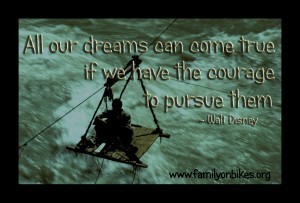 We, as humans, have this tendency to build up the unknown into some kind of great big monster out to slay us. We look ahead into the vast expanse of indefinite spread out before us and see it as something too big, too immense for us.
We, as humans, have this tendency to build up the unknown into some kind of great big monster out to slay us. We look ahead into the vast expanse of indefinite spread out before us and see it as something too big, too immense for us.
We look at ourselves and see a tiny inconsequential being lost in the enormity of the dream. We’re inadequate against the colossal hurdles we need to leap over to get to that dream.
And so we cower in the corner. We’re scared. We’re inadequate. We’re too small and unworthy of such a dream.
I think otherwise. I think each one of us is perfectly capable of surmounting those fears that paralyze us.
How do I overcome fear? I just start walking.
People tell me all the time that I’m brave for riding a bike to the ends of the world, but I disagree. I don’t think I’m brave at all. I just trust in providence and go.
What I’ve found is that the closer I get to what I feared the most, the more that fear vanishes. It’s like there’s some kind of massive mountain “out there” off in the distance and I’m terrified of climbing it. But when I get closer to it, I start to see that it’s not nearly as scary as I thought, and most often not nearly as big as I thought.
I wish I could say I’m brave. I wish I could look at a thing like riding my bike from one end of the world to the other and not be afraid. But, truth be told, I was terrified.
I was scared of the mountain passes higher than the highest peaks in Colorado. I was scared of the Patagonian winds so strong they would blow me off my bikes. I was scared of the searing heat of Central America and the bitter cold of the high Andes in winter. I was scared. More than scared – I was petrified.
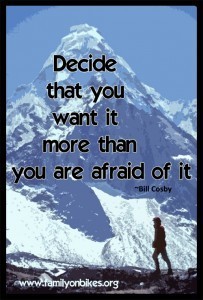 Ride a BIKE the length of the Americas? That was crazy talk. That kind of journey was for real adventurers, not the likes of me. Only big strong men with muscles bulging from their calves could make such a journey. Not an ordinary wife, mother, and schoolteacher.
Ride a BIKE the length of the Americas? That was crazy talk. That kind of journey was for real adventurers, not the likes of me. Only big strong men with muscles bulging from their calves could make such a journey. Not an ordinary wife, mother, and schoolteacher.
When I actually took time to dig deep and figure out exactly what I feared, I realized I wasn’t afraid of the mountain passes; I was afraid I wouldn’t be able to get over them. I wasn’t afraid of the heat or cold, I was afraid that I wouldn’t be able to handle it. In other words, I was afraid of failure.
Once I had identified my fear, I was able to start working on it. You know what they say:
Better the devil you know than the devil you don’t know.
That’s exactly how it is with fear. Identify your fear and figure out exactly what it is that’s making you uncomfortable. Once you’ve given your fear a name, you can face it and overcome it.
You simply can’t defeat the unknown. Make it known and you’ll be able to stare it down. My basic plan of attack is to identify the fear, figure out exactly what it is about that fear that scares me, then head out anyway. It works.
Seven tips to overcome fear
Identify your fear. Exactly what are you afraid of?
Analyze your fear. Is your fear rational? Will it hurt you? Fear is a good thing if it keeps you safe and prevents you from getting eaten by a wild animal or burned by a fire. Most fears, however, are of things that won’t harm us. Those are the fears we need to banish.
Use gradual desensitization. Start small. Take baby steps to gradually melt the fear away. If your dream is to travel, start traveling in a “safe” way with someone to hold your hand until you’re ready to stand on your own.
Consider what others are doing. If they can do it, why can’t you? What do “they” have that you don’t? Chances are: nothing.
Change the way you think and you change the way you act. You can control your thoughts. Whenever you find yourself dwelling on the things you’re afraid of, change your thoughts to think positive thoughts about the good parts of your dream.
Be on the offensive rather than defensive. The vast majority of those things you fear will never happen. What you imagine is nearly always worse than the truth. Just start walking and face the fear.
Go public about your fear. Somehow there is power in letting it out. Tell everyone how scared you are and, chances are, the fear will dissipate.
Nancy Sathre-Vogel, a long-time schoolteacher, decided life was too short to cower in the corner. Together with her husband and children, she climbed on a bike and cycled from Alaska to Argentina – a journey of 17,285 miles through fifteen countries that took nearly three years. Her book, Changing Gears: A Family Odyssey to the End of the World was released last week. You can buy it on her site, www.familyonbikes.org
Original article can be found here: Overcoming fear
March 24, 2013
Hard work can be pleasurable and that pleasure can be hard work
Vagablogging :: Rolf Potts Vagabonding Blog
“Tourism is a sacred journey, the contemporary counterpart of medieval pilgrimage. It turns on a very contemporary distinction between work and play. It thereby ignores that hard work can be pleasurable and that pleasure can be hard work.”
–David Brown, “Genuine fakes” (1996)
Original article can be found here: Hard work can be pleasurable and that pleasure can be hard work
March 21, 2013
The New Light of Burma
Vagablogging :: Rolf Potts Vagabonding Blog

Picture credit: Hans Kemp/Burmese Light
Visionary World from Hong Kong is about to release “Burmese Light”, a pictorial travel book assembled by photographer Hans Kemp and travel writer Tom Vater. The project is an attempt to capture the current changing situation of Myanmar, a country that, despite its troubled past, is making waves within travelers, researchers and scholars alike. I decided to ask some questions regarding the project – to hit the streets in May 2013 – to Hans Kemp, who has traveled the country on and off the beaten track and has packed this book with some incredible pictures. They will definitely intrigue and inspire many to follow his Burmese footsteps…
Why did you decide to capture a visual/textual snapshot of Myanmar at this present time?
Hans Kemp – I have been publishing illustrated books for a long time and the idea of doing a book on Myanmar has been there a long time. What made me decide to do it now was a combination of a growing interest in the country and therefore a better economic prospect for a book and the realization that Myanmar could soon be caught in a maelstrom of “progress and destruction” with the loss of old architecture and customs, to make place for high rises and KFC.
You have known Burma through the years. How do you think tourism and related modernity is impacting the country, positively and/or negatively?
Hans Kemp – The double edged sword of tourism. It can cut away the isolation of the people, perhaps provide opportunities for a better or at least more prosperous living, but at the same time it will likely cut the genuineness and openness of the people. At the moment the infrastructure is not ready for a large influx of visitors, hotels are raising their prices to absurd levels thereby attracting only the kind of tourists that can afford the high prices and they bring their own particular demands. Ultimately it doesn’t matter what I think will be the direction of the development but how it is perceived by the local people. The ones without connections to the powers that be, will their life improve? And not only on a materialistic level. I don’t see a Starbucks or a KFC as an improvement over a cup of tea with a freshly baked paratha sipped and eaten while seated on a plastic chair on the corner of Mahabandoola and 30th in downtown Yangon. I really hope Yangon isn’t becoming “boutiquesized” but I guess it is inevitable.
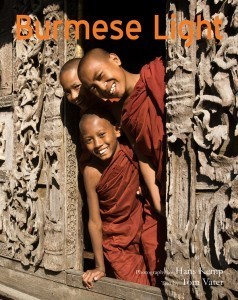 In the book, you are using citations from other writers/adventurers who visited or lived in Burma throughout the past few centuries. Why did you go for such a choice?
In the book, you are using citations from other writers/adventurers who visited or lived in Burma throughout the past few centuries. Why did you go for such a choice?
Hans Kemp - To add some observational flavor. To let the readers realize the country has already changed in many ways, as a prelude for what is to come. Perhaps a nostalgic longing on the part of myself to have lived in those days, when to travel was a verb. Many of the descriptions are quaint, patronizing even yet they have a quality transcending time. Especially the way Orwell describes the changing seasons in Burmese Days, it is superb.
How did you choose the locations for you pictorial reports? I see there is a balance between established mass-touristic destinations, and more remote places.
Hans Kemp – Myanmar is huge, there are the “must sees” of course that belong in this kind of book but there is so much more. I only touched on some of the more remote corners and in a way didn’t want to put them in the book as sooner or later, they will become mainstream. I’d rather have that happen later but as it no doubt will happen I decided to show my impression of some of those places as they are now not knowing if I will, or even want to, return.
Original article can be found here: The New Light of Burma
March 19, 2013
Why I’m not a minimalist… I’m a “maximalist”
Vagablogging :: Rolf Potts Vagabonding Blog
The subject of my life as a minimalist keeps coming up in conversations lately.
I’m always a bit taken aback when someone suggests it, because I don’t think of myself as a minimalist at all. It’s true, I’ve lived out of a backpack, essentially, for over five years now. My whole life fits into one checked bag and one carry-on. Does that make me a minimalist? Perhaps.
Interestingly, I view myself in the exact opposite fashion: I refer to myself as a maximalist. It’s not about stripping life down to the bare essentials for me, it’s about living as large as I possibly can, experiencing it all, and finding good in both extremes, with my heart somewhere in the middle. It just so happens that in this incarnation of my life, as I travel relentlessly in search of memories with my family as the kids evaporate before my very eyes, that I don’t have much in the way of “stuff.” That’s not because I’m morally opposed to the stuff. It’s because the stuff would interfere with what matters most to me, with what I’m trying to achieve to the maximum, which is time, freedom, experience and relationship building. For now, I choose to spend my time and money on those things, which means that I don’t have much “stuff,” which makes me look like a minimalist, I suppose.
So what about you? Are you a minimalist? Or a maximalist, like me? Where do you fall on the sliding scale of moral debate about “stuff,” its origin, impact and use? This is a discussion, and there’s no “right answer,” so please, chime in!
Original article can be found here: Why I’m not a minimalist… I’m a “maximalist”
March 17, 2013
Andrzej Stasiuk on the joys of visiting a place you know nothing about
Vagablogging :: Rolf Potts Vagabonding Blog
“It is good to come to a country you know practically nothing about. Your thoughts grow still, useless. Everything must be rebuilt. In a country you know nothing about, there is no reference point. You struggle to associate colors, smells, dim memories. You live a little like a child, or an animal. Objects and events may bring things to mind, but in the end they remain no more than what they are in fact. They begin only when you experience them, vanish when others follow.”
–Andrzej Stasiuk, On the Road to Babadag: Travels in the Other Europe (2011)
(2011)
Original article can be found here: Andrzej Stasiuk on the joys of visiting a place you know nothing about
March 15, 2013
Special March Fares for Multi-Stop Tickets on BootsnAll
Vagablogging :: Rolf Potts Vagabonding Blog
Want to connect with other travelers? Fill out a traveler profile over at BootsnAll and find other travelers who share your same interests.
One of the best parts of travel, in my opinion, is connecting with others who share your same interests. While I love my friends and family back home, some just “don’t get it,” and it can be frustrating when you don’t feel like you have anyone to truly connect with where you live. It’s nice to find others who prioritize the same things you prioritize.
It only takes a few minutes to set up, and you can browse over 250 other travelers to find people to connect with. Sort by things like travel type, age, budget, and gender. Or search by people’s favorite city or country and get in touch to find out more about that particular destination. You can also help others with their trips as well!
We like to highlight cool indie trips we create on our trip planner. Check out these five fares we’ve found this month on Indie, BootsnAll’s Multi-Stop Trip Planner:
RTW from LA – $2779 : Los Angeles > Bangkok > Delhi > Paris > Toronto > Denver > Los Angeles $2779 taxes and fees included.
Explore Europe – $2091 : Charlotte > London >overland> Paris >overland> Amsterdam > Athens > Lisbon > Charlotte from $2091 taxes and fees included.
Circumnavigate the Globe – $2983 : San Francisco > Boston > Munich > Athens >overland> Istanbul > Dubai > Bangkok >overland> Saigon > Hong Kong > San Francisco from $2983 taxes and fees included.
RTW from Sydney – $3185 : Sydney > Rome > Amsterdam > Reykjavik > San Francisco > Honolulu > Sydney from $3185 taxes and fees included.
Explore Asia and the South Pacific – $3687 : London > Hong Kong > Bali > Cairns > Sydney > Nadi > Los Angeles > London from $3687 taxes and fees included.
If you are looking for something a little different in your round the world trip, then go ahead and plan your own trip on Indie, our multi-stop trip planner. And don’t forget to sign up for BootsnAll’s RTW newsletter, delivering special deals, RTW trip planning advice, and resources via email every single month. We also have a Facebook fan page and Twitter page, so be sure to like and follow those to keep up to date on all your RTW travel needs.
Original article can be found here: Special March Fares for Multi-Stop Tickets on BootsnAll
Rolf Potts's Blog
- Rolf Potts's profile
- 323 followers


